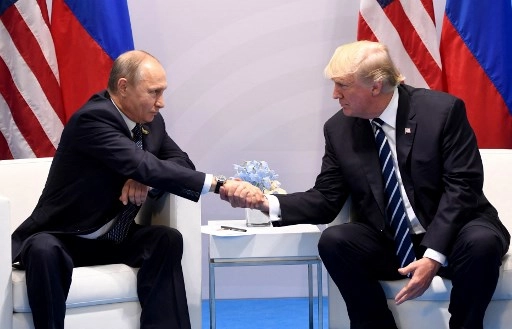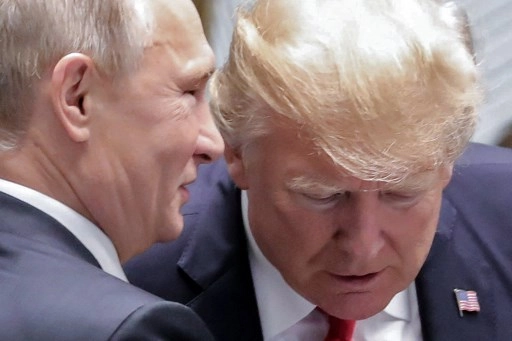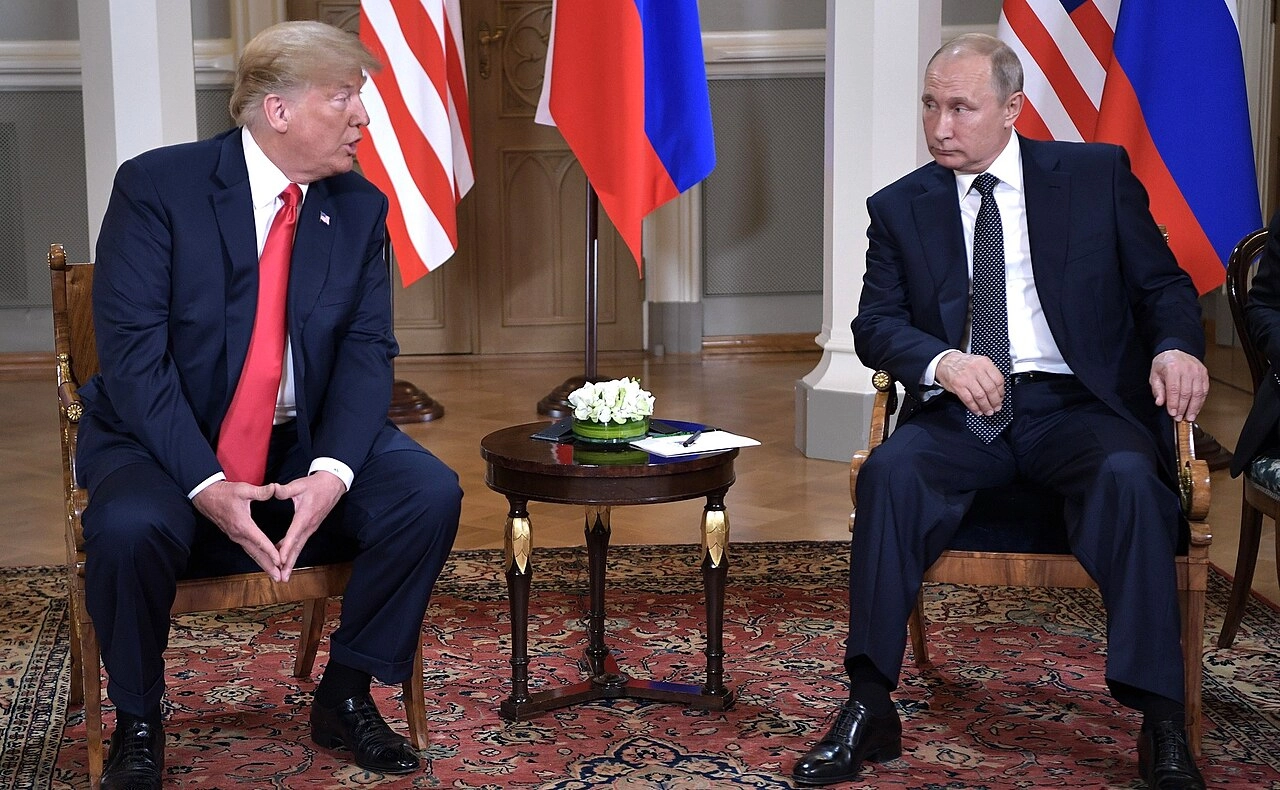They shook hands under the flashes of cameras in Hamburg, held closed-door talks in Helsinki, and exchanged diplomatic pleasantries at international forums. Over eight years, US President Donald Trump and Russian leader Vladimir Putin have met in person six times, and on Friday a seventh meeting will be added to that list – in Alaska, at a moment when war, sanctions and the future architecture of global security are at stake.
Given that their previous meetings not only shaped US-Russia relations but also had a lasting impact on global diplomacy, this upcoming summit is certain to capture worldwide attention. But how many times have Trump and Putin met before? When did their relationship begin? And what have these personal encounters revealed about their approach to global issues?
The relationship between Donald Trump and Vladimir Putin began long before high-profile summits and global press conferences. Back when he was still a businessman, Trump openly praised the Russian leader, calling him a “tough guy” and “smart.”
Whether any unofficial meetings took place before Trump’s presidency remains unclear. However, during his time as US president, between 2017 and 2021, he officially met with Putin six times. The first of these encounters took place on July 7, 2017, at the G20 summit in Hamburg, Germany.
First meeting – Hamburg, July 2017 (G20)

This long-anticipated conversation lasted more than two hours – far longer than planned. The main topic was Russia’s interference in the 2016 US presidential election. Putin flatly denied any involvement, and Trump did not press the issue of accountability. The leaders also discussed combating cyberattacks, the conflict in Syria, and ways to de-escalate it.
“Sanctions were not discussed at my meeting with President Putin. Nothing will be done until the Ukrainian & Syrian problems are solved!” Trump wrote at the time on what was then Twitter (now X).
Although the meeting brought no breakthrough on the war in eastern Ukraine or the lifting of sanctions, it produced several tangible outcomes: an agreement on a ceasefire in certain areas of Syria and the appointment of Kurt Volker as the US Special Envoy to Ukraine. Despite the lack of major diplomatic progress, the encounter became a symbol of direct dialogue between the two leaders after a prolonged period of tension between the two countries.
Second meeting – November 2017
The second official meeting between Trump and Putin took place on Nov. 11, 2017, in Da Nang, Vietnam, during the Asia-Pacific Economic Cooperation (APEC) summit. This time, there was no formal stand-alone summit, but their multiple brief interactions on the sidelines – from handshakes to private conversations – drew just as much attention as official talks.

Unlike their first meeting in Hamburg, this one was informal and brief but again touched on the war in Syria and the issue of Russia’s interference in the 2016 US election. Later, Trump noted that the Russian leader denied any involvement:
“Every time [Putin] sees me, he says: ‘I didn’t do it,’ and I really believe that when he tells me that, he means it.”
The leaders briefly touched on Ukraine, but no breakthrough agreements were reached.
Third meeting – the Helsinki summit that shook the world
On July 16, 2018, in Helsinki, Finland, Trump and Putin held their third official meeting – the first full-scale bilateral summit between the leaders of the two countries.
The event included a closed two-hour one-on-one conversation with only interpreters present, a working lunch with their delegations, and a joint press conference that later sparked an international and domestic scandal.
During the talks, the sides discussed a wide range of issues: arms control, the situations in Syria, Iran, and Ukraine, as well as cybersecurity and economic cooperation. However, the diplomatic outcomes quickly took a back seat to the political firestorm triggered by Trump’s remarks at the press conference.
Answering a question from journalists about Russia’s interference in the 2016 US presidential election, Trump effectively cast doubt on the conclusions of his own intelligence agencies and publicly backed Putin’s categorical denial.
“I have great confidence in my intelligence people, but I will tell you that President Putin was extremely strong and powerful in his denial today,” Trump said.

The reaction in the United States was immediate: Democrats accused him of undermining national security, and even some Republicans criticized the president’s stance as contradicting the country’s interests.
Unplanned contact in Buenos Aires: a private dinner instead of an official meeting
After the intense public scrutiny of the controversial Helsinki summit, Trump and Putin planned to meet again on Dec. 1, 2018, on the sidelines of the G20 summit in Buenos Aires. However, just two days before, the US president unexpectedly canceled the meeting via Twitter, saying he did not consider talks possible in light of the Kerch Strait incident, when Russian forces seized three Ukrainian naval vessels and their crews.
Despite the official cancellation, Trump and Putin still had a private conversation on Nov. 30 during a dinner for world leaders. The exchange took place without any US officials present or official notes, raising questions among journalists and critics about the content and nature of the discussion between the two presidents.
June 28, 2019 – ‘ Don’t meddle in the election, please’
At the G20 summit in Osaka, the leaders of the United States and Russia once again shook hands – this time against the backdrop of the high-profile release of Special Counsel Robert Mueller’s report, which confirmed Moscow’s interference in the 2016 US presidential election.
During a brief photo-op, a journalist directly asked Trump if he planned to raise the issue in his conversation with Putin. Smiling, the American president turned to the Russian leader and quipped:
“Don’t meddle in the election, please.”
Although his words drew laughter in the room, many experts viewed the tone as too lighthearted for an issue Washington officially regards as a national security threat.
During the same meeting, Putin invited Trump to attend the Victory Day parade in Moscow in 2020. The US president politely thanked him for the invitation but ultimately did not appear at the event during that election year.
After six official meetings, dozens of brief exchanges, and years of controversial statements, Trump and Putin are once again set to sit down at the table – this time negotiating in Alaska.
The war in Ukraine is expected to be among the topics discussed, but it remains unclear whether the conversation will include words about justice and accountability for war crimes – including Moscow’s abduction of Ukrainian children – or whether it will boil down to political bargaining.

